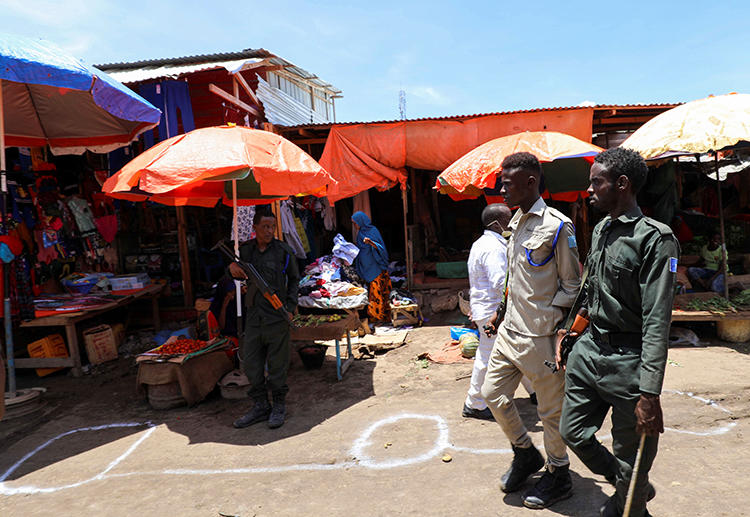Nairobi, April 30, 2020 — Somali authorities should immediately release radio journalist Mohamed Abdiwahab Nuur and allow him to work freely, the Committee to Protect Journalists said today.
On March 7, an officer with the National Intelligence Security Agency arrested Mohamed, an editor with the privately owned Mogadishu-based broadcaster Radio Hiigsi, who is also known as Abuuja, at his father’s office in the capital’s Shibis district, according to his father, Abdiwahab Nuur Mahdi, who spoke to CPJ via messaging app.
Mohamed has not been seen since his arrest, and his family and colleagues have been unable to contact him, according to the journalist’s father and Radio Hiigsi director Farhan Hassan Omar, who also spoke to CPJ via messaging app.
In an April 22 statement, the Ministry of Information claimed that Mohamed was being held on suspicion of being a member the militant group Al-Shabaab and that he was under investigation in connection with a 2019 murder case.
“It is an outrageous infringement on Mohamed Abdiwahab Nuur’s fundamental rights that nearly two months since his arrest, the government has failed to produce him in court, or to provide any information about his well-being beyond a sparse statement,” said CPJ sub-Saharan Africa representative, Muthoki Mumo. “The Somali government should free Mohamed Abdiwahab Nuur and stop interfering with his work as a journalist.”
Mohamed’s father and Abdalle Ahmed Mumin, the secretary general of the local press rights group the Somali Journalists Syndicate, told CPJ that they suspected Mohamed’s arrest may be tied to a February 26 editorial, aired on Radio Hiigsi and published on the station’s Facebook page, alleging a lack of professionalism in the Somali military.
The National Intelligence Security Agency previously arrested Mohamed over that report on February 29, but released him without charge on March 2, according to a statement from the syndicate.
Abdiwahab said that the officer who arrested Mohamed on March 7 was Liban Mohamed, the same officer who had arrested Mohamed on February 29. During the March 7 arrest, Liban said that he wanted to question the journalist and then release him, Abdiwahab said.
Abdalle said that Mohamed told him that during his detention from February 29 to March 2, interrogators beat him and threatened him with a gun, and tried to coax him into confessing that he was a member of Al-Shabaab.
Mohamed told his father that that officers also wanted him to confess to the March 6, 2019, murder of Bahsan Bolay, Abdiwahab said. Bahsan, a Somali political delegate, was killed by gunmen allegedly linked to Al-Shabaab, according to news reports.
Abdalle also told CPJ that Mohamed said officers accused him of criticizing security personnel, and that he had been released on March 2 on condition that he would not write about the security services or speak about what happened during his detention.
Abdalle and Mohamed Ibrahim Moalimuu, the secretary of the Federation of Somali Journalists, another local press rights group, said they believed that the journalist’s status as a member of a minority clan was part of the reason why he remained in detention.
Farhan described the April 22 statement from the Ministry of Information as an attempt “to hide the suffering of the journalist.”
“If it’s true, it should have had evidence since he accused of murder. He is held unlawfully and in falsehood,” he said.
CPJ’s calls, text messages, and emails to Attorney General Suleiman Mohamed Mohamud and Deputy National Security Minister Abdinasir Said Musse went unanswered. Abdirahman Yusuf Al-Adala, the director general of the Ministry of Information, today told CPJ that Mohamed’s file had been forwarded to the judiciary but said that he could not provide any further substantive comment on the case.
CPJ messaged the National Intelligence and Security Agency on Twitter for comment but did not receive any response. CPJ could not find other contact information for the agency.
On April 20, journalists gathered in Mogadishu demanding Mohamed’s release, according to posts on social media by the Somali Journalists Syndicate and the Federation of Somali Journalists.
